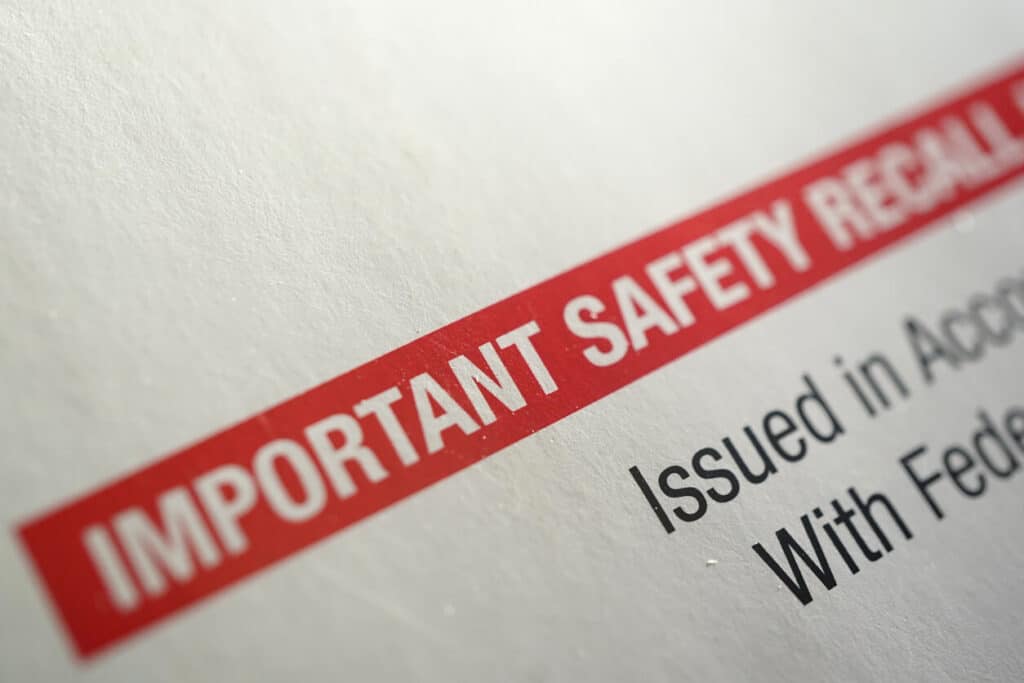We are no longer accepting new cases.
Weitz & Luxenberg is now accepting cases of individuals who were injured or required hospitalization because of a malfunctioning EpiPen. Cases from families who have lost a loved one due to EpiPen failure are also encouraged to reach out to us.
EpiPens, and the smaller EpiPen Jr, are used to control severe, life-threatening allergic reactions. They quickly deliver a pre-measured dose of epinephrine, commonly known as adrenaline, that reverses the body’s reaction to the allergy. The delivery mechanism is known as an “auto-injector.”
EpiPens are manufactured by Pfizer’s Meridian Medical Technologies company for the pharmaceutical company Mylan.
In March 2017, the U.S. Food and Drug Administration (FDA) posted a consumer alert from Mylan announcing a voluntary recall of some EpiPen and EpiPen Jr devices following company identification of failing units and receiving reports of failing devices due to a manufacturing defect.
In September 2017, the FDA sent a warning letter to Meridian Medical Technologies, Inc., a Pfizer company, after inspecting a manufacturing facility in Missouri and finding that the company did not properly investigate identified problems with units of auto-injectors in EpiPen and EpiPen Jr products and hundreds of complaints about EpiPen and EpiPen Jr devices that failed to activate properly, including those that resulted in death.
EpiPens Essential in Life-Threatening Emergencies
For many people who suffer from severe allergies, EpiPens are the first line of defense in the event of exposure to bee stings, peanuts, seafood, or other triggers that can cause a deadly allergic reaction.
The EpiPen and EpiPen Jr devices are designed to deliver pre-measured doses of the drug epinephrine to reduce wheezing, improve breathing, reduce hives and swelling of the face and lips, and counteract other symptoms of the allergic reaction. In their most severe form, allergies can cause anaphylaxis, which can cause loss of consciousness, dangerously low blood pressure, inability to breathe, cardiac arrest, or death. Many patients carry multiple EpiPens in case they need a second dose during a particularly severe reaction.
Until earlier this year, Mylan had a near monopoly on this treatment, holding 94% market share for auto-injector devices, according to Reuters.
FDA Alert and Warning Letter
The alert to consumers, posted online by the FDA in March 2017, announced that Mylan and Pfizer had voluntarily recalled 13 lots of EpiPen and EpiPen Jr devices. They were recalled because of a potential for the devices to contain failed auto-injector components that could prevent the devices from activating and delivering the proper dose.
Six months later, in September 2017, the FDA issued a warning letter to Meridian Medical Technologies, Inc., a Pfizer company, over the company’s failure to adequately address identified EpiPen and EpiPen Jr product failures or investigate multiple serious component and product failures, including those identified as resulting in “patient deaths and severe illness.”
According to the letter, Meridian Medical Technologies, Inc., a Pfizer company, identified a faulty component in one of its devices used in EpiPen and EpiPen Jr products in which the device “failed to fire on receipt testing” on February 1, 2016, but failed to conduct a thorough investigation to determine the extent of the defect. This was despite the fact that the company had received “hundreds of complaints” that its “EpiPen products failed to operate during life-threatening emergencies, including some situations in which patients subsequently died.”
In addition to manufacturing defects that made the EpiPen and EpiPen Jr products unable to successfully dispense epinephrine, customers also complained that the pens accidentally dispensed the drug prior to use. This resulted in leaving patients with nearly empty EpiPen or EpiPen Jr products when they most urgently needed them.
The letter criticized Meridian Medical Technologies, Inc., a Pfizer company, for failing to properly investigate these complaints and take adequate steps to remove its defective products from the market, exposing customers to the potential for serious injury or death. The letter also noted that the company only issued the voluntary recall after the FDA closed its inspection of Meridian’s Missouri facility and “multiple discussions with FDA” occurred.
W&L Can Help Individuals Harmed By Defective EpiPens
Weitz & Luxenberg’s Drug and Medical Device Litigation Unit says the firm is interested in hearing from anyone who required hospitalization because of an EpiPen or EpiPen Jr that failed to deploy properly, delaying or preventing necessary treatment. We’d also like to hear from you if a loved one died because the EpiPen or EpiPen Jr used during an allergic reaction did not work properly when administration was attempted.
Families may be entitled to compensation for medical expenses, lost wages, and other costs. An experienced attorney can help explore all legal options.
Weitz & Luxenberg is ready to assist you, beginning with a free consultation. Contact us at or by using the online form on this page to discuss your legal options.


